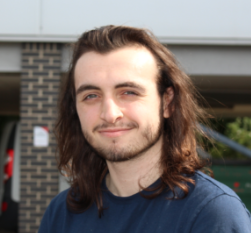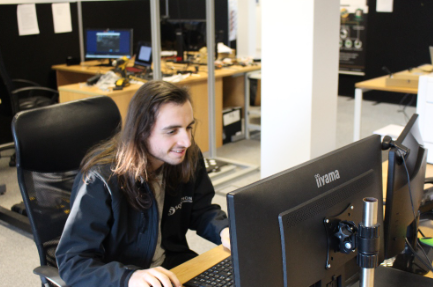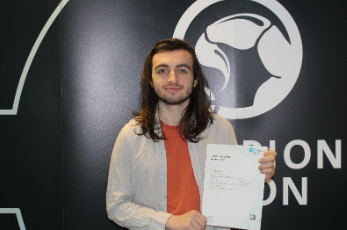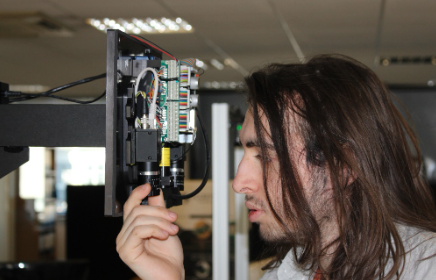Ever wondered what being a vision systems engineer entails? Or whether the
apprentice pathway is a good route to a career in engineering? In this two-
minute interview, Alex Charles, machine vision engineer at vision-driven
automation provider Scorpion Vision, reveals all about his apprenticeship
experience.

Q: What made you apply for an apprenticeship?
A: After sixth form, I knew I wanted to go into a computer science related career,
but I wasn’t convinced university was the right route for me. I think that if you are
academic at school, you are often pushed down the university route, but graduates
build up a lot of debt and it is not necessarily the best way to gain experience.
Scorpion sent a letter to the sixth form college I was at, inviting students to apply
for a machine vision engineering apprenticeship. I applied and was invited in for an
interview.
Q: What qualifications did you need to secure your apprenticeship?
A: I had good A’ levels in Maths and Computer Science, and an interest in gaming
and computing in my spare time, which went in my favour.
Q: What does an apprenticeship entail?
A: Scorpion Vision’s apprentice scheme allows you learn whilst in employment.
During my one-year apprenticeship I spent three days at work and two days
studying at college for an HNC in computing and was paid a full-time wage. This
programme gave me the best of both worlds – I was able to gain hands-on
experience by working on projects at Scorpion whilst studying for an HNC. You gain
a lot more ‘on the job experience’ than you would with a university degree course.
Q: What skills have you learned during your apprenticeship?
A: I strongly believe that I have learned far more by working on real-life build and
design projects and visiting customers than I ever would have done sitting in a
lecture theatre or library. By working in industry I have gained skills that simply
aren’t taught on any computer science course curriculum. I’ve learned how to
programme robotic vision systems to trim vegetables accurately and pick and place
products into packaging; I’ve learned how AI can be harnessed to enhance image
processing and I’ve accumulated lots of knowledge about optics, lenses, cameras
and lighting – hardware as well as software.
Q: What have been the highlights of your apprenticeship?
A: Last year I got to travel to Norway to visit Scorpion Vision’s parent company,
Tordivel AS, where all the camera hardware is built. Not only did I see another part
of the world, I learned a great deal about building cameras.
Another highlight was when I was recently chosen as lead engineer on a project
involving a complex line-scanning camera build. It was great to receive the
recognition that I was being trusted with more responsibility.
Q: What do you like about working for Scorpion?
A: There is a very relaxed working environment and my job is anything but
monotonous; I’m not stuck at a desk or in a cubicle all day – every day is different
and every project is varied. I also get out and about visiting customer sites
throughout the UK.
Q: What are your plans for further career development?
A: I would like to get more involved in AI-based systems as I think this is a really
exciting area and a lot of the projects Scorpion takes on have an AI element. I am
considering doing an Open University course in AI.


hands-on experience by working on projects at Scorpion whilst studying for an HNC
in Computing.

accumulated lots of knowledge about optics, lenses, cameras and lighting –
hardware as well as software.


